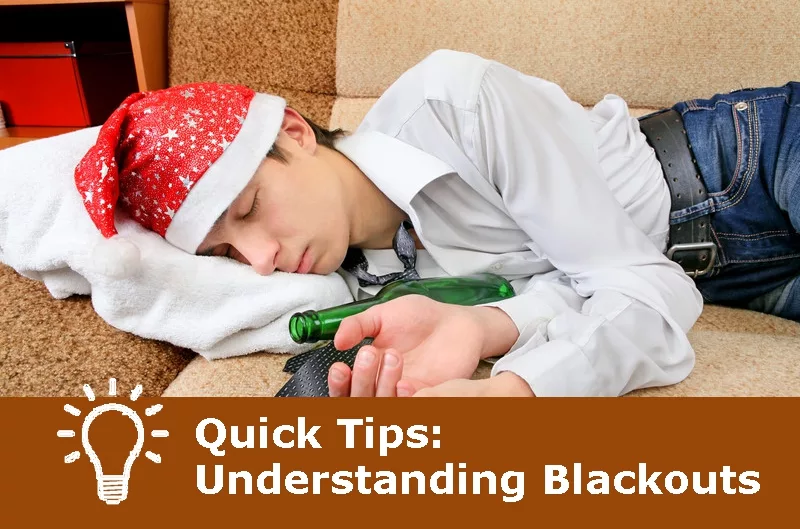The recent Senate hearings regarding Supreme Court nominee Brett Kavanaugh have brought up the topic of alcohol overuse, and especially the issue of the alcoholic blackout. This post covers what alcohol-induced blackouts are and aren’t, and how to differentiate them from simply passing out from too much alcohol.
Alcohol is a potent CNS depressant, and can affect the brain in unpredictable ways. It usually starts by depressing the frontal lobes and causing disinhibition, and then gradually affects deeper brain regions, eventually causing the person to pass out—essentially to fall into a state of deep sedation because of severe intoxication. The state is dangerous, because of the risk of respiratory depression, choking, arrhythmia, and death. This is “passing out.”
In a “blackout,” the alcohol level is high enough to affect many areas of the brain, including the hippocampus, where long-term memories are stored. When this happens, the person has the combination of social disinhibition, a staggering but still functional motor ability, and no ability to keep a memory record of what is happening. This can have serious ethical and legal ramifications—people who pass out can be the victims, while those who black out can be the victims or perpetrators of sexual assault and other forms of violence.
Practice Implications: A good way to evaluate your patients for a history of blackouts is to ask if others have told them of behaviors they themselves don’t remember. And educate them that this can happen at a certain level of intoxication, especially with a rapid rise in blood alcohol level, even in people who are young, healthy, and don’t meet criteria for alcohol use disorder. Finally, make addressing it part of your safety and treatment plan.
Where to find more. If this quick tip and the topic interests you, consider subscribing to The Carlat Addiction Treatment Report.
Alcohol is a potent CNS depressant, and can affect the brain in unpredictable ways. It usually starts by depressing the frontal lobes and causing disinhibition, and then gradually affects deeper brain regions, eventually causing the person to pass out—essentially to fall into a state of deep sedation because of severe intoxication. The state is dangerous, because of the risk of respiratory depression, choking, arrhythmia, and death. This is “passing out.”
In a “blackout,” the alcohol level is high enough to affect many areas of the brain, including the hippocampus, where long-term memories are stored. When this happens, the person has the combination of social disinhibition, a staggering but still functional motor ability, and no ability to keep a memory record of what is happening. This can have serious ethical and legal ramifications—people who pass out can be the victims, while those who black out can be the victims or perpetrators of sexual assault and other forms of violence.
Practice Implications: A good way to evaluate your patients for a history of blackouts is to ask if others have told them of behaviors they themselves don’t remember. And educate them that this can happen at a certain level of intoxication, especially with a rapid rise in blood alcohol level, even in people who are young, healthy, and don’t meet criteria for alcohol use disorder. Finally, make addressing it part of your safety and treatment plan.
Where to find more. If this quick tip and the topic interests you, consider subscribing to The Carlat Addiction Treatment Report.


_-The-Breakthrough-Antipsychotic-That-Could-Change-Everything.webp?t=1729528747)



